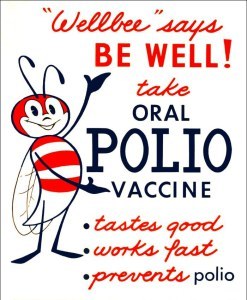
When it comes to illness, what’s in a name?
The other day, my boyfriend emailed me an article whose French title translates to “Condition branding”, or the art of inventing illnesses to sell more medication. An admitted hypochondriac, I expected to grudgingly chuckle at some ludicrous diseases that had been made up to trick people into getting treatment (all while wondering if I might have some of them myself). But that wasn’t what happened.
Author Mikkel Borch-Jacobsen cites a number of conditions, including human papillomavirus (HPV), erectile dysfunction, bipolar disorder, irritable bowel syndrome, and post traumatic stress disorder (PTSD) as trendy, recently identified medical problems whose real prevalence and seriousness have been exaggerated just to sell medication.
It’s an intriguing argument, and if Borch-Jacobsen had made it more artfully and with a show of compassion for those who do suffer from these conditions, I probably wouldn’t have been upset. But I’m horrified by his implication that the diseases he mentions are made up, or that all of them actually only affect a small portion of the population. I’m also angered by his lumping a long list of conditions together; some are difficult to live with, but can be managed, while others, like HPV, are issues that can lead to further health problems, and even death.
One thing these illnesses do have in common is that, unlike what Borch-Jacobsen seems to suggest, it’s not that they didn’t exist before the pharmaceutical industry allegedly decided to champion their cause; whether or not there’s a connection, they simply weren’t named before. To give one well-known example, in literature, memoirs, and medical accounts of the time, how many World War I veterans were observed suffering from what we would now call PTSD?
Those of us who are afflicted with one or more recently identified medical conditions know that giving them a name is about so much more than selling pills. It’s about giving people a sense of direction, a way to find knowledge and get help, a way to know they’re not alone. It’s also about raising awareness. By defining conditions like HIV, AIDS, HPV, and bipolar disorder, to name a few, we’ve been able to make huge strides in how they can be treated and/or prevented.
I know the importance of naming an illness firsthand. When I was a teenager, I started having chronic stomach problems. After some tests, my doctor handed me a list of symptoms and asked me if they seemed familiar. As I went down the list, I was amazed to read things that could have come from my diary. I realized that this problem wasn’t something I was facing alone: it was called irritable bowel syndrome, and there was a whole group of people who were going through it. My diagnosis changed my life. I was able to find online support groups and learn how to manage my symptoms.
The expression “knowledge is power” is a cliché, but like many clichés, there is some truth to it. Not acknowledging a health issue doesn’t make it disappear; naming it and learning about it is the only chance you have of doing that.
I wonder what would happen if Borch-Jacobsen woke up one day with one of these “trendy” diseases he mentions – say, erectile dysfunction? I’m guessing he’d be glad to know he wasn’t the only man with this problem!
#conditionbranding #pharmamarketing #globalmarketing #marketresearch #aiatranslations
